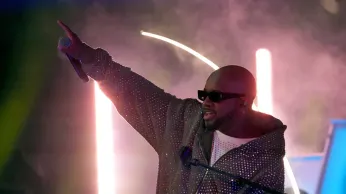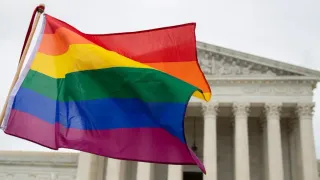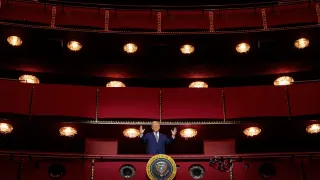
7 hours ago
Jermaine Dupri Sparks Industry Debate: Are AI Artists the New Milli Vanilli?
READ TIME: 2 MIN.
Jermaine Dupri, a pioneering figure in hip-hop and R&B, recently drew a sharp parallel between today’s embrace of artificial intelligence artists and the notorious Milli Vanilli scandal of the late 1980s and early 1990s. In a statement posted to X on November 6, Dupri questioned the legitimacy of AI-generated performers, referencing the infamous incident in which Milli Vanilli was stripped of their Grammy Award after it was revealed that they had not sung on their chart-topping records. “So let me get this right, years ago the industry found out that Milli Vanilli weren’t really the voices on their Grammy winning record and they were stripped of their Grammy, but now we’re getting ready to accept people who can’t even sing, creating songs for a fake person? How is this any different than Milli Vanilli?” Dupri wrote, highlighting what he views as a contradiction in how authenticity is valued in music today .
The rise of AI artists has sparked both fascination and concern across the music industry. AI-generated performers, such as those using the SUNO music app, can produce entire songs using written material provided by users, blurring the lines between creator and creation . Supporters argue that AI is a tool for creative expansion, enabling new forms of expression and breaking down barriers for those who might not fit traditional molds of the industry . Critics, however, echo Dupri’s concerns, warning that the widespread acceptance of AI-generated artists could undermine the value of authentic human performance and artistry, especially as AI models are trained on the work of real musicians without always providing recognition or compensation .
The emergence of AI artists holds particular relevance for LGBTQ+ artists and communities. On one hand, AI can serve as an avenue for self-expression, especially for transgender people, non-binary individuals, and others who have historically faced discrimination or exclusion in the mainstream music industry. AI platforms may allow artists to create music without being subject to industry biases regarding gender, sexuality, or appearance. Some LGBTQ+ creators have embraced AI technology as a means to amplify their stories and voices in ways that may not have been possible in the past .
Conversely, there are concerns that AI-generated artists could dilute the visibility and opportunities for LGBTQ+ musicians by allowing companies to sidestep genuine representation in favor of algorithmic creations. Industry advocates stress the importance of maintaining authentic, human-driven storytelling, particularly for marginalized communities whose experiences are often erased or appropriated .
Dupri’s comparison of AI musicians to the Milli Vanilli scandal has prompted renewed debate about what the music industry values in its artists: Is it the performance, the authenticity, or simply the product? While technology continues to reshape the landscape, many in the industry, including LGBTQ+ advocates, call for transparent standards that recognize both innovative tools and the irreplaceable role of lived experience and identity in art . As AI artists climb the charts, the discussion sparked by Dupri’s remarks is likely to shape how audiences, creators, and industry leaders define authenticity and inclusion in the music of tomorrow.






